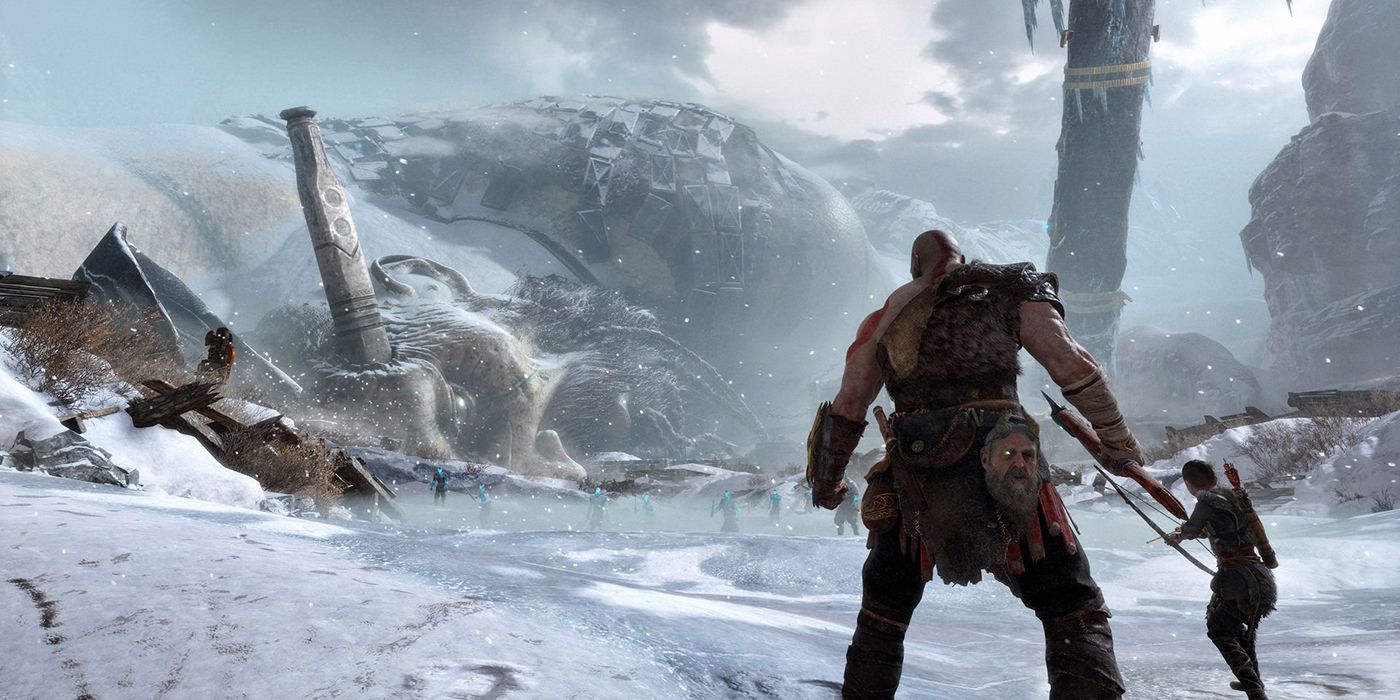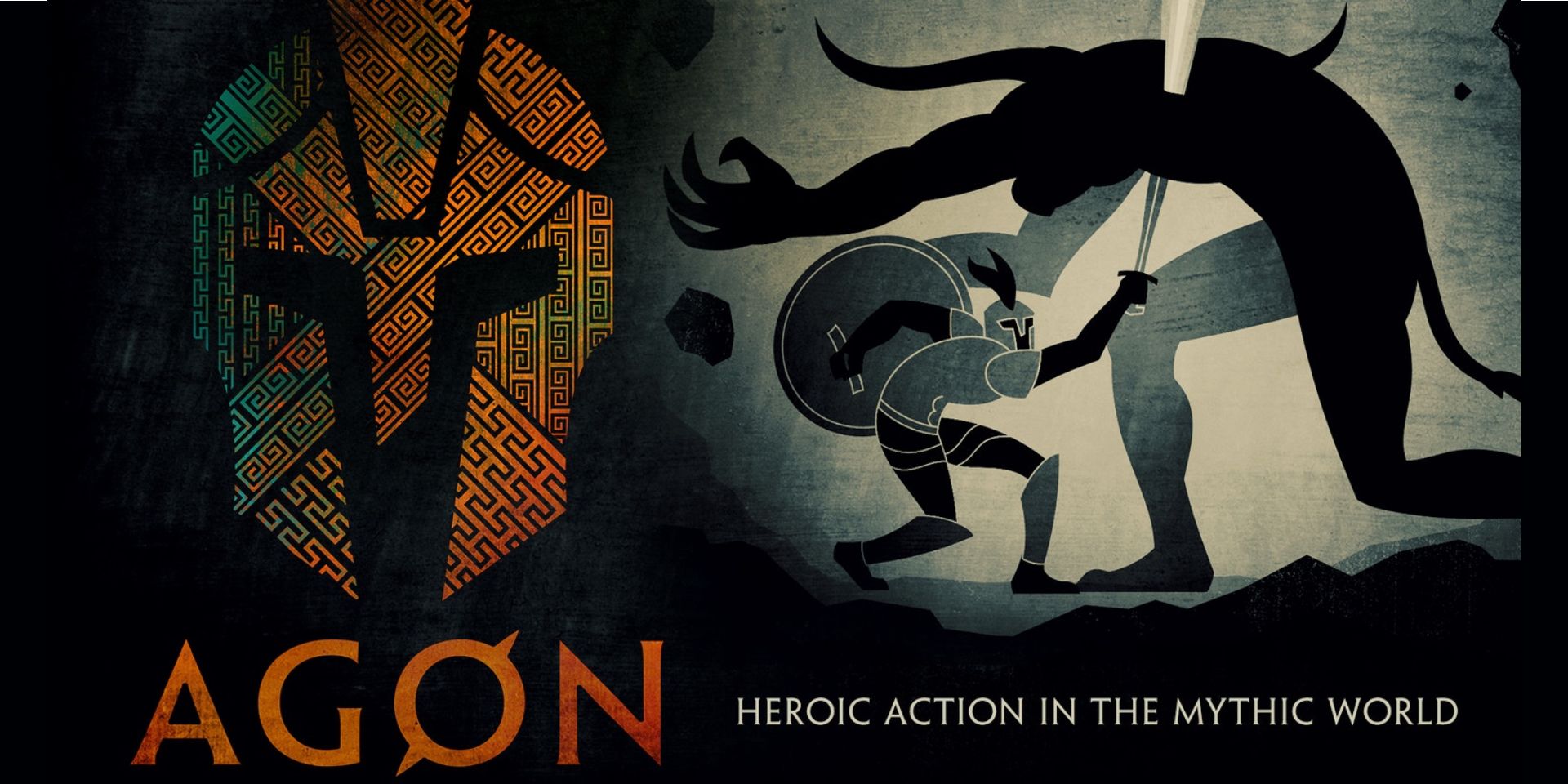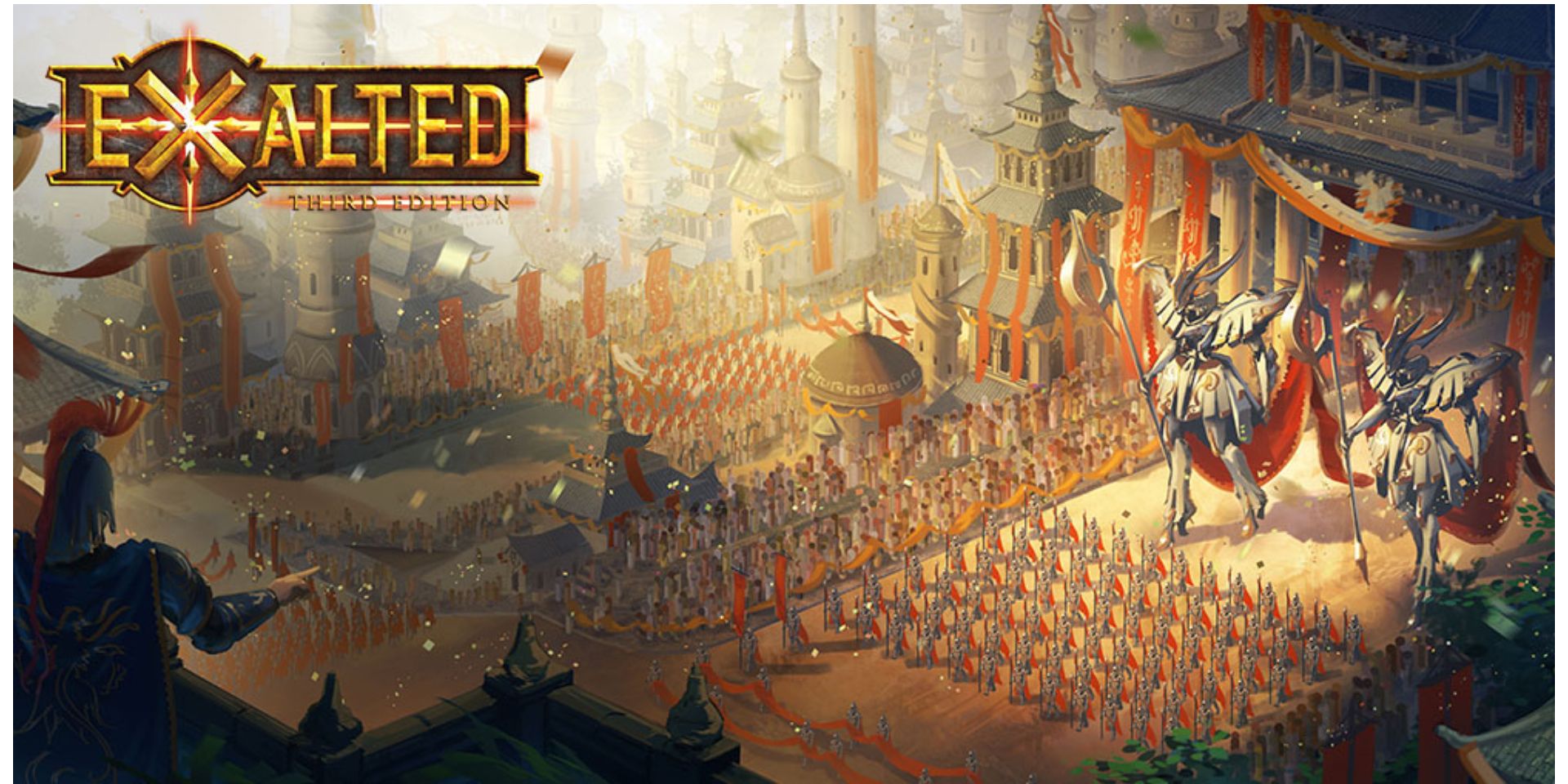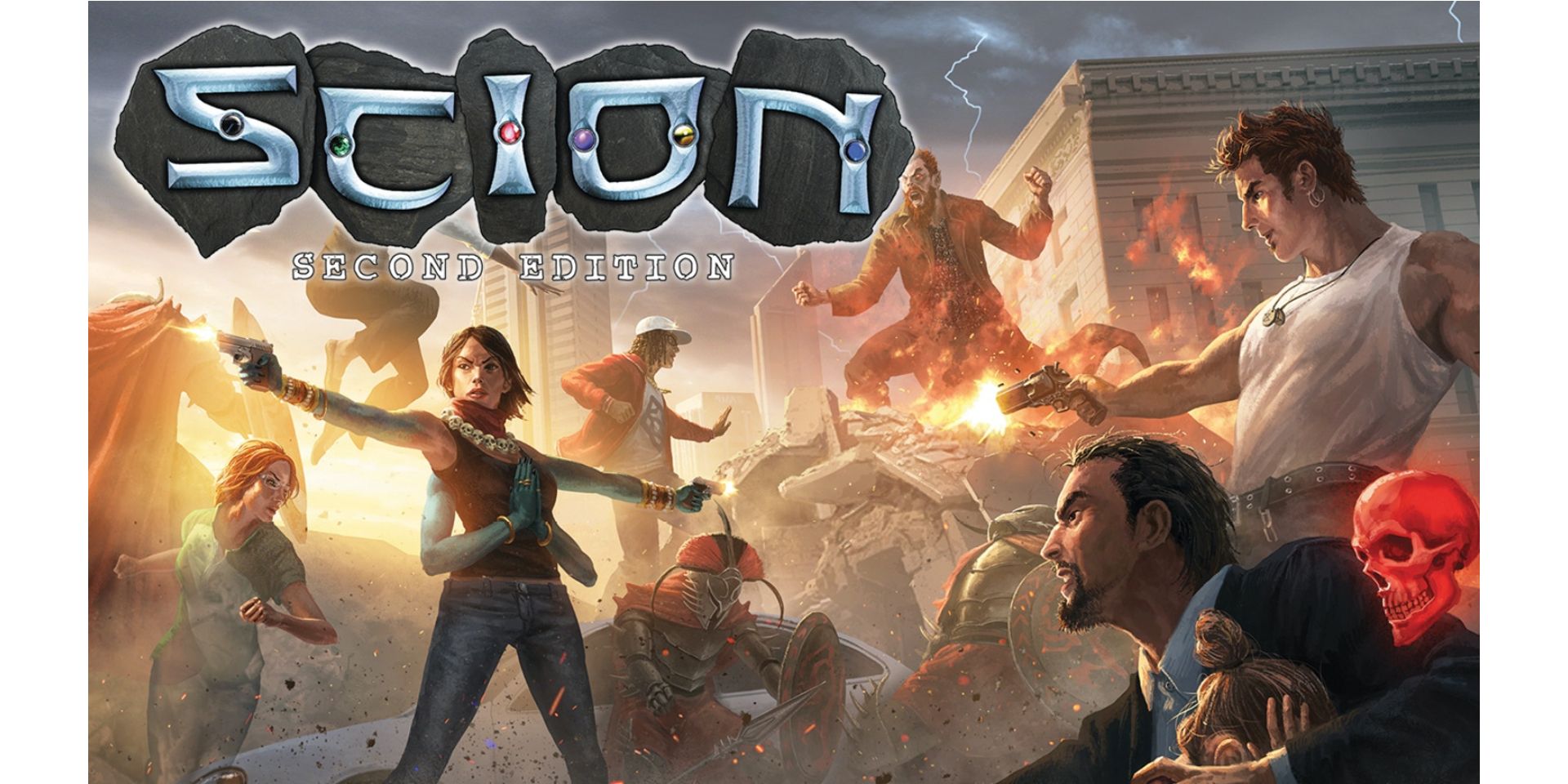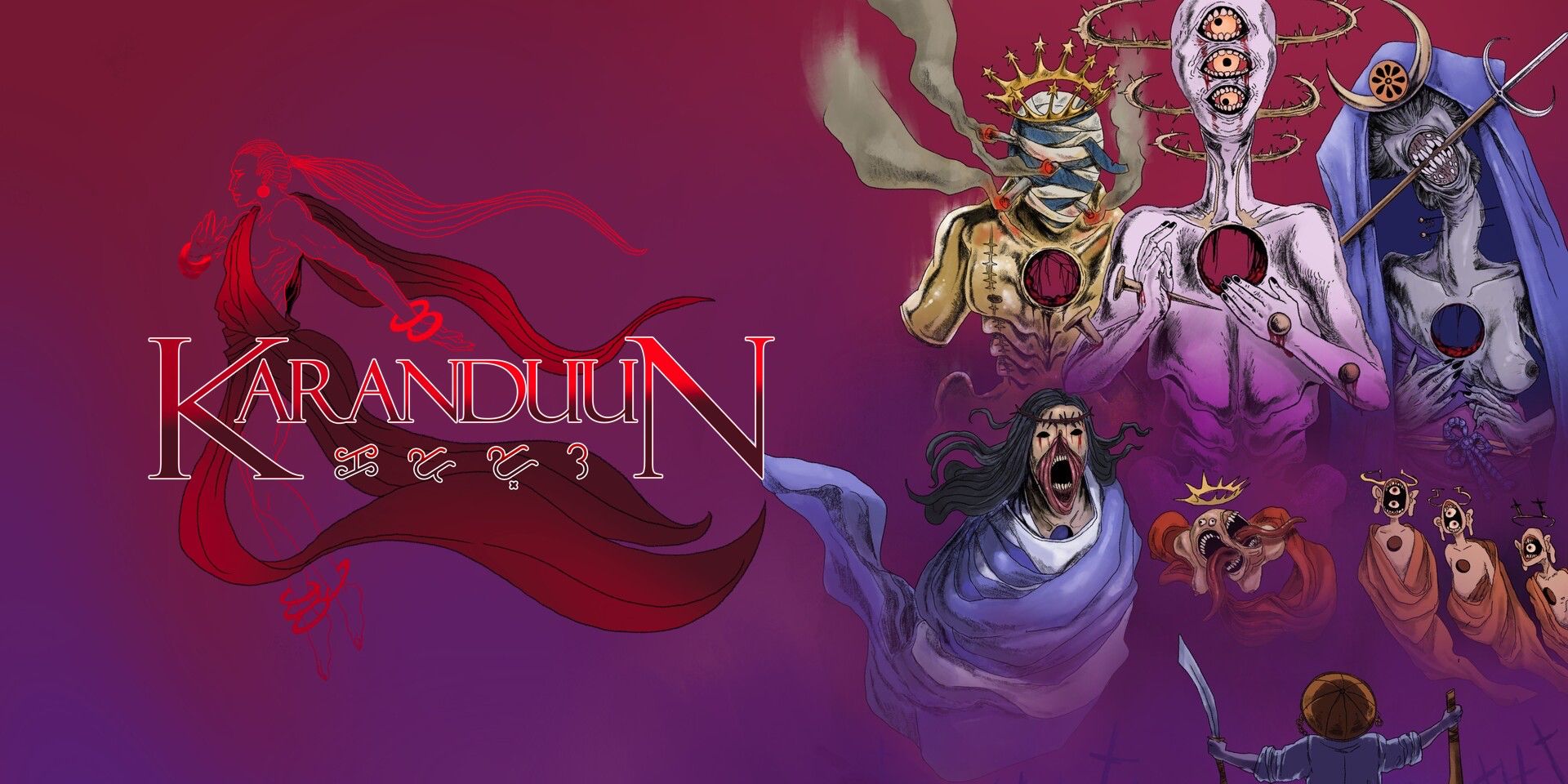There are tabletop RPGs like old-school Dungeons & Dragons that put players in the position of underdogs, ragtag adventurers with dented swords and tattered spellbooks who struggle to survive the monsters they face - then there are RPGs which let players create characters more akin to Kratos from God Of War, demigod heroes who can wrestle giants to death and kick down the doors of heaven. In RPGs like these, the question players are faced with isn't "can I become powerful enough to survive," but rather "can I use this power wisely without being corrupted by it?"
In the second season of Fantasy High, a D&D-meets-The Breakfast Club RPG live-streamed by the Dimension 20 tabletop live-play channel, the Dungeon Master Brennan Lee Mulligan introduces an NPC character named Gilear with an Armor Class of 10 and a Hit Point total of 5. When the players of his game expressed horror at this character's utter fragility, Mulligan's reply was curt, exasperated, and surprisingly insightful: "He's not cursed, he's just a guy! Some people have to be normal! ...do you know that most people, if you stab them with a sword, will die right away?"
Brennan Lee Mulligan's comment highlights a rarely-spoken truth: in many fantasy RPGs, even more "grounded" ones like Dungeons & Dragons, characters with a high enough level can perform impossibly superhuman feats. In D&D wizards can set armies ablaze with firestorms, while even the most mundane sword-and-shield fighter can vault chasms in a single bound and tank a point-blank blast of dragon breath. The following RPGs embrace this "superhero" style of power fantasy by putting players in the role of demigod heroes who must face off against gargantuan monsters and morally-bankrupt pantheons. In these over-the-top tabletop games, players are faced with a moral choice: do they wield their character's powers like Kratos from the first three God of War games, slaughtering their way through their problems in an explosion of indiscriminate divine fury? Or will they be more like the old, wiser Kratos from God of War 2018, trying to be better than the gods they oppose?
Tabletop RPG: Agon
Agon is the newest RPG by game designer John Harper (famous for designing the dark fantasy heist RPG Blades In The Dark). Thematically and mechanically, Agon is designed to replicate the story arcs of classic "voyage and return" tales from Greek Mythology – the Odyssey, Jason And The Argonauts, the 12 Labor of Heracles – through a gameplay cycle where bands of mythical heroes visit an island, confront the perils there, and either depart in triumph or disgrace.
The narrative-focused character-creation mechanics of Agon are designed to help players create demigods with heroic, virtues, flaws, personal pathos, and divine favor from deities in the Greek Pantheon. Deeds of courage or cleverness might win these heroes extra Divine Favor from their patrons... or incur their wrath, as Odysseus did when he blinded the Cyclops, son of Poseidon.
Tabletop RPG: Exalted 3rd Edition
In the setting of Exalted, an epic mythological fantasy game published by Onyx Path, the world is a flat plane of reality floating atop a sea of chaos, dominated by the tyrannical Scarlet Dynasty and the myriad gods of the Celestial Bureaucracy. In the Third Age, the Age of Sorrows, Creation itself threatens to be unraveled by a legion of perils – the unreal hordes of the Fair Folk, the hungry ghosts of the Underworld, the hell-bound Primordials and their legions of demons. And then there are the "Exalted," mortal beings imbued with shards of divine power, gifted with the potential to save the world or doom it to its last days.
Mechanically, Exalted 3rd Edition is a complex game with a lot of "crunch" and customization option, its diverse range of "Charm" abilities letting players create uniquely mighty heroes with the power to reshape the world they live in through leadership, charisma, craft, or sheer physical prowess. Each variant of "Exalt" is inspired by (and lets players tell stories inspired by) different real-world mythologies and the epics therein.
The Solar Exalted, empowered by the excellence of the Unconquered Sun, are modeled after the impossibly talented heroes of Greek and Indian Mythology. The Lunar Exalted, chosen of mercurial Luna, embody shapeshifting tricksters and monster-heroes such as Sun Wukong, Enkidu, and Cu Chulainn. The Dragon-Blooded, heroes who inherit elemental power from their ancestors, invoke the aristocratic heroes and champions of civilization seen in stories like Romance Of The Three Kingdoms. And the Sidereal Exalted, chosen by the maidens of Fate? They can punch their enemies hard enough to warp reality and retroactively turn them into ducks.
Tabletop RPG: Scion 2nd Edition
Scion is another RPG system made by Onyx Path that takes the over-the-top heroics of Exalted and transplants it into a modern-day setting with elements from Americans Gods and the Percy Jackson books. The basic premise behind the world of Scion is simple: it's a world much like our own, with cars, guns, and reality TV shows. It also happens to be a world where the ancient polytheistic pantheons and mythical creatures of old never went away, and the demigod children of deities like Zeus, Freya, Durga, or Baron Samedi must awaken to their powers and help their divine families foil the schemes of the imprisoned Titans. The "Storypath" system of Scion, shared with the superhero-genre Trinity Continuum RPGs, is designed to create interesting narrative variants of success/failure while representing the differences in power between mortal, demigods, and monsters using straightforward, intuitive rules.
Tabletop RPG: Karanduun - Make God Bleed Edition
Tabletop games like Agon, Exalted, and Scion are about empowered heroes striving to defy and rebel against godlike beings and literal gods. Karanduun: Make God Bleed, created by developers from the Philippines, embraces this theme of misotheistic rebellion, fusing it with tropes from "New Weird" fantasy fiction like Kill Six Billion Demons, traditional Tagalog mythology, superhero comics, Wuxia, and the harsh legacy of European colonialism in Southeast Asia. The end result is a narrative roleplaying game described its designers as "a modern Filipino Epic RPG about worthless heroes dismantling God, whatever cycle of oppression that must be."
In the backstory of Karanduun, the original god of the multiverse, Batala, was murdered by a triad of gluttonous deities called the Holy Trinity; unlike Kratos from God Of War, these usurper deities made themselves the oppressive rulers of the now-dying Cosmos. The titular "Karanduun" are rebels against this order, mortal beings who wield the spiritual energy of Gahum to smite servants of the Trinity and inspire denizens of the multiverse to rise up against their masters. The gameplay of Karanduun is heavily inspired by the mechanics seen in "Powered By the Apocalypse" games, with fiction-first rules called "Acts" and a flexible character creation system that lets player create characters ranging from masterful martial artists and sorcerers to tree people, clockwork angels, and fish-headed dwarves - "worthless heroes" who all want to make the gods bleed.

